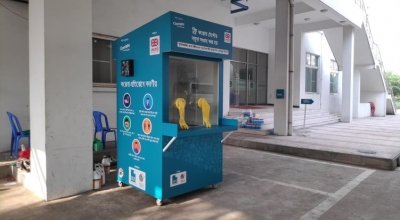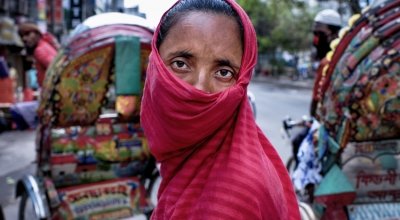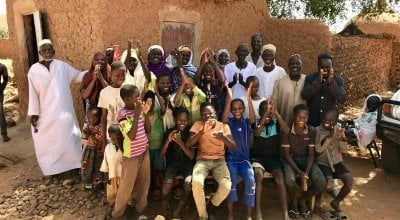
Knowledge Hub
While the effects of Coronavirus (Covid-19) have been devastating both at home and internationally, the worst of the pandemic appears to be over in the UK and there are hopes that the peaks of the infection are behind us. However, worries remain about poorer parts of the world where the effects of the virus are likely to be much more severe.
Covid-19 is now in almost all of the countries where we work - some of the poorest and most at risk countries in the world. This article explores why Covid-19 is so dangerous for the communities we work in, and what is being done to minimise the threat.
1. Health systems are already weak
In countries where health systems are incredibly weak, the effects of the pandemic taking hold could be catastrophic. Primarily, the lack of intensive care unit beds poses the biggest threat. In Malawi, there are about 25 ICU beds in public hospitals, serving 17 million people, while in Somalia there is one ICU bed per million people. With a population of almost eight million people, Sierra Leone also has a low number of ICU beds, and only 13 ventilators – that’s one for every 600,000 people.
Moreover, countries such as the Central African Republic have very few additional medical resources, such as medicines, equipment and staff, and are already struggling to provide adequate health care to communities without the presence of a pandemic. On average, sub-Saharan Africa has about one doctor for every 5,000 people, compared with 14 in the UK, according to the World Health Organisation (WHO).
With limited resource, the focus in these countries is on Covid-19 prevention. We are working closely with communities to disseminate prevention information and materials; setting up handwashing facilities; distributing soap and hand sanitiser; training community health workers on infection control, as well as supporting governments to ensure that hospitals and health clinics are able to continue delivering their regular health services alongside infection prevention control.



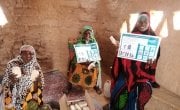
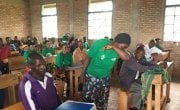
Many countries are also still recovering from the strain that other disease outbreaks have put on their health systems. For example, the last two Ebola outbreaks—in West Africa from 2013 to 2016 and now in the Democratic Republic of Congo—have devastated the affected countries. However, this has also meant that some countries’ capacity to tackle emerging infectious disease have improved. Investments have been made; stockpiles of protective equipment already exist; their capacity to trace the contacts of patients who might have been exposed to a dangerous pathogen is developed; and these experiences have added to global knowledge about how to deploy experimental treatments for other emerging diseases in resource-limited settings. [The Atlantic]
2. Immune systems are compromised
A major concern with Covid-19 is that an already weakened immune system may not be able to fight off a potentially deadly infection. We also know that age poses the highest risk for Covid-19 severity and mortality rates. One factor contributing to this is the immune system becomes less able to fight off illness as people get older.
Some of the world’s poorest countries are also some of the world’s youngest nations: half of the population of Niger are under the age of 15 [Business Insider]. This has led to a misconception that these countries may not be as severely affected by Covid-19, as their younger populations are more easily able to fight off the virus. However, this may not be the case.
In fact, scientists warn that poor healthcare and the unknown effects of Covid-19 on those who are malnourished. Moreover, diseases such as malaria, tuberculosis and HIV are extremely common in the world’s poorest (and youngest places) and could counterbalance any benefit from youth.
3. Social distancing is impossible
It has almost become the buzzword of 2020 as here in the UK we go about our lives two metres apart from those not in our households, but for some parts of the world social distancing is impossible.
Demographics are the first difference. The world’s poorest people tend to live in households containing more people and more generations, in contrast to countries like the UK where older people are effectively already socially distanced from younger ones. As a result, infections are likely to be spread more evenly across all age groups and if one member of the household catches the disease, it won’t be long before the whole household is infected.
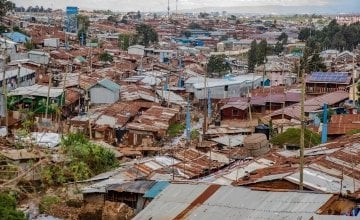
Then there are those living in refugee camps. How can people be told to stay home when they no longer have a home? How can people wash their hands when they share a single tap with thousands of others?
The almost 900,000 Rohingya people who fled to Cox’s Bazar in Bangladesh – the world’s largest refugee camp – from Myanmar are among the most at risk globally in this pandemic. Conditions are cramped and basic, making social distancing impossible: the population is so dense that 40,000 people share a single square kilometre, nearly eight times to population density of London. Clean water and hand washing facilities are also scarce and shared among many people.
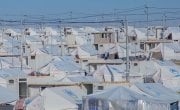
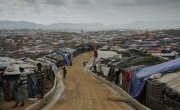
On May 14, the first Covid-19 positive case within the Rohingya refugee community was confirmed. Since then, 132 cases have been reported, with the actual numbers expected to be much worse [Relief Web]. In Bangladesh, over 68,000 cases have been confirmed.
In Bangladesh, we have redesigned our nutrition services at the Rohingya camps. We are also providing gloves and masks to help prevent the spread of the virus whilst increasing awareness campaigns on hygiene promotion and infection control through one-to-one discussions in line with social distancing and demonstrations of how to use protective equipment.
4. The economic toll will increase poverty and hunger levels
According to UN Secretary-General Antonio Guterres, Covid-19 will cause “…an economic impact that will bring a recession that probably has no parallel in the recent past.” Certainly, the economic toll of lockdown is already leading to poverty and unemployment for millions. While the exact repercussions of the virus on our economy here in the UK remains impossible to predict, it will undoubtedly be severe.
The effects of prolonged quarantine on developing nations could be as harmful as the virus itself. "The most devastating and destabilising effects" of the pandemic "will be felt in the world's poorest countries", UN Under-Secretary-General for Humanitarian Affairs Mark Lowcock said.
Unless we take action now, we should be prepared for a significant rise in conflict, hunger and poverty. The spectre of multiple famines looms.
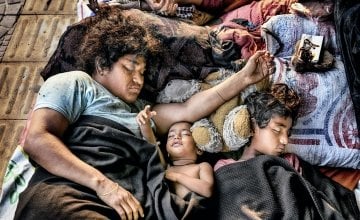
The World Food Programme echoed this statement, announcing that the coronavirus pandemic will see more than a quarter of a billion people suffering from acute hunger by the end of the year. Concern is highest for those in countries across Africa as well as the Middle East, as the virus threatens both lives and livelihoods.
Any food price inflation as a result of coronavirus will be worst for those who are poorest, especially those who depend on daily wages. Many people living in these countries live paycheque to paycheque, eating only if they earn a wage. If lockdown measures mean they cannot work, then they simply cannot eat. Moreover, many are already dealing with factors such as conflict or climate change that make earning a living or feeding their family exceedingly difficult: Covid-19 may be the setback that pushes them over the edge.
We are providing cash support to households in Somalia, Kenya, Rwanda, the Democratic Republic of Congo, Malawi and Turkey to cushion the economic impact of Covid-19.
Combination: the aggravating factor
For most people living in vulnerable countries, they are often not simply at risk of one these factors, but all. In Iraq, there is a growing fear that the virus could spread to overcrowded camps in the north of the country where almost 250,000 displaced people have fled. Many live in close proximity to each other with limited access to health and sanitation facilities. Social distancing is almost impossible and most have nowhere safe to go. The problem is worsened by the state of the country’s healthcare system - stretched by decades of sanctions, conflict and neglect.
The factors outlined above are damaging in and of themselves, but together they could be more lethal than the virus itself.
The coronavirus pandemic is a global crisis that requires a global response. Concern has always been committed to a principal of leaving no-one behind – and this has never been more relevant.
If you’d like to help, please donate to our Coronavirus Emergency Appeal
Other ways to help
Donate now
Give a one-off, or a monthly, donation today.
Join an event
From mountain trekking to marathon running, join us for one of our many exciting outdoor events!
Buy a gift
With an extensive range of alternative gifts, we have something to suit everybody.
Leave a gift in your will
Leave the world a better place with a life-changing legacy.
Become a corporate supporter
We partner with a range of organisations that share our passion and the results have been fantastic.
Create your own fundraising event
Raise money for Concern by organising your own charity fundraising event.



